|
The “Concord Hymn” by Ralph Waldo Emerson was written for the dedication of the Battle Monument on July 4, 1837 in Concord, Massachusetts. It commemorated the Battle of Concord which took place at the North Bridge at the outbreak of the American Revolution. By the rude bridge that arched the flood, Their flag to April’s breeze unfurled, Here once the embattled farmers stood And fired the shot heard round the world. The foe long since in silence slept; Alike the conqueror silent sleeps; And Time the ruined bridge has swept Down the dark stream which seaward creeps. On this green bank, by this soft stream, We set today a votive stone; That memory may their deed redeem, When, like our sires, our sons are gone. Spirit, that made those heroes dare To die, and leave their children free, Bid Time and Nature gently spare The shaft we raise to them and thee. While visiting relatives in New England last month I had the opportunity to spend time in the towns of Concord and Lexington in Massachusetts. These towns witnessed the opening salvos of the Revolutionary War nearly 250 years ago. On the morning of April 19, 1775 hundreds of British soldiers left Boston and marched toward Concord to capture and destroy stockpiles of gunpowder and military supplies stored by the local militia. Along the way the British soldiers confronted seventy-seven militia men waiting for them on Lexington Green. No one is sure who fired the first shot, but within minutes eight colonial militia men were killed and several more were wounded. The British suffered only one minor casualty and soon resumed their march to Concord. Once in Concord, British soldiers searched homes and barns for military supplies, and burned all that they found. Thinking that the soldiers had set their town on fire, the local militia confronted the British soldiers at the North Bridge. The soldiers fired upon the militia, killing two men and injuring several more. A militia officer ordered his men to return fire and two British soldiers were killed. This was an act of treason against the British government and the spark that ignited the American Revolutionary War. At the Minute Man National Historical Park I joined a guided walk along the Battle Road Trail, part of the colonial Bay Road where several battles and skirmishes took place on that fateful day in 1775. As we walked along the woodland path lined with maple, oak and beech trees alight in their colorful autumn splendor, it has hard to imagine the enormity of the events that had taken place here. But a black cloud hung over New England that day, as was the case on April 19, 1775. The news of a horrific mass shooting in Lewiston, Maine the previous night was being reported, and the details of the carnage were being updated throughout the day. An Army reservist with a history of mental illness had killed eighteen people and wounded thirteen others using an AR-10 assault rifle. Walking along Battle Road that day, I couldn’t stop thinking about the senseless slaughter of innocent people that took place the previous night. Sometime later I came to the realization that the mass shooting in Maine was somehow rooted in the events that took place in Concord in 1775. The local militias in Concord, Lexington, and surrounding communities had effectively repelled professional soldiers of an overseas king. There was no going back. Colonial Militias: In colonial times a militia represented a military force raised from the civilian population, for the common defense of the community. Militias were distinct from professional soldiers, and were generally organized around towns, regions, or colonies. Members of Massachusetts militias were required to possess and be skilled in the use of a musket, powder, and shot. Local militia units from all of the thirteen original colonies were the backbone of George Washington’s army during the Revolutionary War. The “Militia Act of 1792” stipulated that the militia would consist of each and every able-bodied white male citizen of the respective States, who is at least 18 years of age and under the age of 45. At the start of our new republic, the founding fathers feared that a standing army could be used to suppress the liberties of the citizens, and therefore opposed the formation of one. But they needed to provide for the common defense, and saw the state and local militias as a necessary compromise. It should therefore be no surprise that armed militias were enshrined in the U.S. Constitution. Second Amendment: The 2nd Amendment to the Constitution was adopted in 1791. It states “A well regulated Militia, being necessary to the security of a free State, the right of the people to keep and bear Arms, shall not be infringed”. A lot has changed in the United States since the Second Amendment was adopted. The traditional concept of a civilian based militia no longer exists, and state-based militia organizations have been incorporated into the federal military structure. You can find more information on the history of militias in the United States in one of my previous blog posts. Repeal or Replace the 2nd Amendment: If I was king for a day, I would do away with the 2nd Amendment. That is not to say that I would abolish all access to guns by law abiding citizens. There are legitimate reasons, such as sport and personal protection, for citizens to have access to certain types of guns. But I am convinced that meaningful gun control legislation cannot happen in this country without repealing or replacing the 2nd Amendment. The 2nd Amendment is why we have metal detectors and security guards in schools. It is why mass shootings are common place, and citizens are allowed to parade around openly carrying military style assault weapons. The 2nd Amendment justifies use of military grade armaments and tactics by law enforcement. The 2nd Amendment has given rise to the NRA and other pro-gun lobbies which have corrupted our political system. The 2nd Amendment has had a damaging impact on modern American society. Short of amending the Constitution, guns are here to stay. Fortunately, even the most conservative courts acknowledge that gun regulation does not violate the Second Amendment. Even without amending the Constitution there are some common-sense things that Congress can do. Common Sense Gun Reform Measures: (For more detail on these gun reforms refer to Part 4 of my blog series, Guns in America.
The violent manner in which this country was founded has repercussions to this very day. The events at Concord and Lexington on April 19, 1775 cemented the use of fire arms by the civilian population in America. The 2nd Amendment enshrines it in our Constitution, and our conservative Supreme Court will see to it that this doesn’t change anytime soon. Approximately 42% of American households own at least one gun, and there are reportedly more guns in this country than there are people. Clearly gun ownership is a cultural issue, and it takes a lot of time to change cultural norms. But gun regulation is not a cultural issue. It is a legal and political issue, which can be influenced by the courage and will of the people. No matter where you stand on the gun control issue, I think we can all agree that something needs to be done to reduce gun violence in America. For the sake of the grieving families in Lewiston, Maine, let’s hold Congress accountable for not taking action on meaningful gun reform. If you enjoy reading this type of commentary please subscribe to my blog and tell a friend. You will receive an email notification when new blogs are posted. The email will come from the site’s email: [email protected].
Thanks, Armchair American
1 Comment
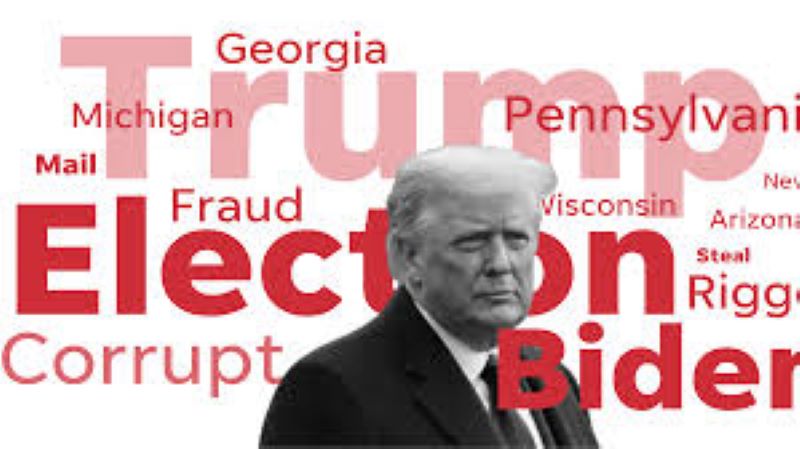 Approximately one-third of Americans, including 70% of Republicans, believe that Joe Biden won the presidency due to voter fraud. I didn’t vote for Donald Trump, so I have little credibility telling someone who did what to think. But a group of Republican staffers and officials with staunch conservative credentials has just published the report “Lost, Not Stolen: The Conservative Case that Trump Lost and Biden Won the 2020 Presidential Election”, https://lostnotstolen.org/wp-content/uploads/2022/07/Lost-Not-Stolen-The-Conservative-Case-that-Trump-Lost-and-Biden-Won-the-2020-Presidential-Election-July-2022.pdf. The authors of the report examined every claim of fraud and misconduct claimed by former President Donald Trump and his advocates. They examined the 64 legal challenges alleging 187 counts of voter fraud, irregularities and procedural deficiencies in the battle ground states of Arizona, Georgia, Michigan, Nevada, Wisconsin and Pennsylvania. According to the report, the Trump team failed to provide substantive evidence to win any of the legal challenges. The report also concluded that the post-election audits and reviews in each state failed to show any irregularities or fraud that would overturn the election results. There was no evidence of fraud in the 2020 Presidential election on the magnitude necessary to shift the result of the election in any state, let alone the entire nation. The report concluded that “there was no fraud that changed the outcome in even a single precinct. It is wrong, and bad for our country, for people to propagate baseless claims that President Biden’s election was not legitimate.” Why is this report important? For the same reason that the January 6 committee investigations are important. To get at the truth. If the American people don’t believe that our elections are free and fair, we will lose our democracy. I am under no illusions that the “Lost, Not Stolen” report or the January 6 committee investigations will change the minds of many Trump loyalists. This would take an unequivocal repudiation of Trump by the Republican Party, and perhaps abandonment by the right-wing media which propped him up. I don’t think that the Republican Party has the moral courage to take on Donald Trump, but some of his right-wing media friends are beginning to turn on him. In recent days, Rupert Murdoch’s New York Post wrote an editorial calling Donald Trump “unworthy to be the country’s chief executive again.” The conservative editorial board of the Wall Street Journal has also turned harshly critical of Donald Trump, calling his actions on January 6, 2021 an utter failure, and a violation of his oath of office. Now if Fox News, another Rupert Murdoch property, were to sour on Trump, I think that his political future would be over. For the Republican Party to remain viable, it needs to move beyond Donald Trump. It discredits the party when a majority of its members lack faith in the 2020 election results based on unsubstantiated claims of a stolen election. It also undermines democracy and the Constitution, which the Republicans claim to be defenders of. To restore its credibility, the Republican Party needs more Liz Cheneys and fewer Jim Jordans. As Nazi propaganda chief Joseph Goebbels was claimed to have said, “If you tell a big enough lie and keep repeating it, people will eventually come to believe it.” If you enjoy reading this type of commentary please subscribe to my blog and tell a friend. You will receive an email notification when new blogs are posted. The email will come from the site’s email: armchairamerican1776 @gmail.com.
Thanks, Armchair American For all intents and purposes the 2020 presidential election is finally over. The Electoral College met on December 14th in all 50 states and the District of Columbia and cast their electoral votes. The Electoral College has spoken and the winner of the 2020 presidential election is (drum roll please), Joe Biden! It was a very contentious election, and President Trump and his allies have tried every legal maneuver possible to have the election results overturned. But the numbers don’t lie. Here is the election scorecard, which even the most hardened partisan cannot overlook: 2020 Presidential Election Score Card Votes/Challenges Trump Biden Popular Vote 74,223,753 (46.9%) 81,283,495 (51.4%) -------------------------------------------------------------------------------------------------- Recounts in Wisconsin and Georgia √ -------------------------------------------------------------------------------------------------- Lower Courts Lawsuits (50+) √ -------------------------------------------------------------------------------------------------- Supreme Court Rulings (2) √ -------------------------------------------------------------------------------------------------- Electoral College Votes 232 306 -------------------------------------------------------------------------------------------------- Winner √ ------------------------------------------------------------------------------------------------- Even before all of the votes from the November 3rd election were tallied, the President’s campaign and his allies, began filing over 50 lawsuits in various jurisdictions. The lawsuits contested the election outcome due to alleged fraud or voting irregularities. Some of these lawsuits are still pending, but the majority were thrown out or decided in Joe Biden’s favor due to lack of evidence. The first Supreme Court challenge, to reverse the election results in Pennsylvania, was denied due to lack of merit. The second Supreme Court challenge, filed by the Texan Attorney General, was denied due to lack of standing (he didn’t have the legal right to sue other states over their election laws). Much to the chagrin of President Trump, the separation of powers is still working. Here is a reference to all of the legal challenges: https://www.9and10news.com/2020/12/10/status-of-election-related-legal-challenges/. The partial recount in Wisconsin and the full hand recount in Georgia, both went in Joe Biden’s favor. On the floor of the Senate today, Leader Mitch McConnel acknowledged Joe Biden’s victory in the Electoral College. He went on to congratulate President-elect Biden and Vice President-elect Harris on their victory. On January 6, 2021 Congress will meet in joint session to count the electoral votes and declare the winner of the presidential election. For the sake of the country, let’s hope that Donald Trump and his millions of admirers accept the outcome of the election so that we can work together on the challenges ahead. If you enjoy reading this type of commentary please subscribe to my blog and tell a friend. You will receive an email notification when new blogs are posted. The email will come from the site’s email: armchairamerican1776 @gmail.com.
Thanks, Armchair American We in the U.S. are still living through the drama of the 2020 presidential election. Just like in the 2016 election, many voters found themselves voting against one candidate rather than for a preferred candidate. John Adams worried that “a division of the republic into two great parties…is to be dreaded as the great political evil.” It appears that Adams’ worries have come to pass. But we have not gotten here overnight, and there is plenty of blame on all sides of the political spectrum. More importantly, is there anything that individual voters can do, or do we just have to accept the status quo? There are many organizations and grass roots movements working to patch the holes in the political system, and to strengthen the democratic process in our country. I have already written about some of them. I dedicated a blog post to the Electoral College (the-electoral-college-love-it-or-leave-it.html). The “National Popular Vote” is an organization attempting to neutralize the Electoral College (https: w.nationalpopularvote.com/). Here are a few other organizations, of varying political views, that are attempting to make a difference: The Lincoln Project: (https://lincolnproject.us/). This organization was established by a group of conservative republicans to defeat Donald Trump and Trumpism, even if it meant helping Democrats get elected to office. In their view the political party is less important than restoring leadership and governance that respects the rule of law, recognizes the dignity of all people, and defends the Constitution and American values at home and abroad. With Donald Trump setting himself up as a presidential candidate in 2024, or simply as a Republican power broker, the Lincoln Project will not soon go away. Run for Something: (https://runforsomething.net/). This organization helps to support young diverse progressives running for office. Their goal is to build a strong Democrat bench for elected and leadership positions. Indivisible: (https://indivisible.org/). This is a national grassroots movement of millions of activists in every state, with partnerships between thousands of autonomous local Indivisible groups and a national staff. Their main goal is to defeat the right-wing takeover of American government and build an inclusive democracy. Sunrise Movement: (https://www.sunrisemovement.org/). This is a youth movement to stop climate change and create millions of good jobs in the process. The Sunrise Movement is attempting to make climate change an urgent priority across America, end the corrupting influence of fossil fuel executives on our politics, and elect leaders who stand up for the health and well-being of all people. Swing Left: (https://swingleft.org/). This organization helps individuals find the most impactful things that they can do to help Democrats win key elections. Americans for Prosperity: (https://americansforprosperity.org/). This is a right leaning group that engages in broad-based grassroots outreach to advocate for long-term solutions to the country’s biggest problems. They focus on issues that prevent people from reaching their full potential, such as immigration, tax reform, burdensome regulations, healthcare and criminal justice. Freedom Works: (https://www.freedomworks.org/). A right leaning organization established to build, educate, and mobilize the largest network of activists to advocate for the principles of smaller government, lower taxes, free markets, personal liberty and the rule of law. Unite America: (https://www.uniteamerica.org/). This grass roots organization is dedicated to putting country over party, which is what attracted me to it. It is a movement of Democrats, Republicans, and Independents working to put voters first by fostering a more representative and functional government. They do this by investing in nonpartisan electoral reform campaigns and work to elect centrist candidates. Two major issues that Unite America is working on are “open primaries” and “rank-choice voting”. If these two voting models were adopted nation-wide, it would go a long way towards loosening the stranglehold that the Republicans and Democrats have on our electoral system. Let’s look at these two policies more closely. Open Primaries: In eighteen states, independent voters are either prohibited from voting in party primary elections or face restrictions. This is because the primary system is closed to only those registered to one of the two major political parties. This seems undemocratic, and unfair due to the fact that all taxpayers pay to hold elections. Open primary systems allow independent voters to vote in either party’s primary. Independent voters, and voters not affiliated with a political party, are the fastest growing segment of the electorate. Open primaries give all constituents a voice in the election and it moderates the process by forcing politicians to appeal to independents as well as to their base. Closed primaries have the perverse effect of producing elected officials more accountable to their party than their constituents. Party primaries are a main reason why elected representatives refuse to work across the aisle. Working across the aisle is often viewed as being disloyal to the party and may result in getting beaten by a more ideological extreme candidate in the next election. “Open Primaries” (https://www.openprimaries.org/) is an organize advocating for open primaries. It was founded on the principle that no American should be required to join a political party to exercise their right to vote. Rank-Choice Voting (RCV): An election system in which a voter can rank candidates in order of preference. It is really quite simple. Here’s how it works:
Advantages of RCV over Traditional Voting:
Rank-Choice Voting is not just wishful thinking. Five states use RCV for overseas and military voters, and twenty municipalities use or have recently approved the use of RCV. In 2016 Maine passed a law that mandates that all state and federal primary elections, and federal general elections be conducted by RCV. In 2020 Maine became the first state in the U.S. to use rank-choice voting in a presidential election. Follow this link to learn to more on RCV in Maine: (https://www.newscentermaine.com/article/news/politics/elections/what-is-and-how-does-maine-ranked-choice-voting-work/97-e7964e06-a087-4b79-97cc-7f053c294248). Earlier this month voters in Alaska approved a ballot measure to mandate the use of rank-choice voting in general elections and the use of “top-four” nonpartisan primaries (https://www.adn.com/politics/2020/11/17/alaska-becomes-second-state-to-approve-ranked-choice-voting-as-ballot-measure-2-passes-by-1/). In Alaska’s new “Final Four Voting” system, all candidates, regardless of party affiliation, would run in a single primary open to all voters. The top four vote getters advance to the general election. In the general election, voters rank the four candidates in order of preference. This is certainly a threat to the status quo (Democrat and Republican parties), but it puts voters first by giving them more of a voice in their elections. Keep an eye on future elections in Maine and Alaska, this could (and in my opinion should) be our future all across America. The reason that these reforms have taken hold in Maine and Alaska, is that the voters in these states are very independent and don’t march in lock-step with the two major political parties. Our country is more politically polarized than ever, and this is not going to change any time soon if just two political parties are calling the shots. Let’s heed the warnings against hyper-partisanship that George Washington articulated in his farewell address, and the great political evil of a republic divided by two great parties that John Adams warned about. “Open primaries” and “rank-choice voting” are nonpartisan approaches that give voters more choice, promotes candidates with broader appeal, and encourages politicians to look beyond their party’s interests. We don’t have to accept politics as usual. If you enjoy reading this type of commentary please subscribe to my blog and tell a friend. You will receive an email notification when new blogs are posted. The email will come from the site’s email: [email protected].
Thanks, Armchair American Congratulations to Joe Biden and Kamala Harris. President-elect Joe Biden will become the 46th President of the United States, and Kamala Harris will become the first woman Vice President in our history!
Donald Trump’s campaign played to voters’ fears, while Joe Biden’s campaign appealed to voters’ hopes. At a time when this country is more politically divided than ever, who do you think has a better chance of uniting us? The Republican Party should be proud of how close the race was, and the seats that they picked up in Congress. But they need to get behind a leader who brings out the best in Americans, not the worst. A leader who can rise above petty politics, who sees America as one people, and works to unite rather than divide. As predicted, the coronavirus did not mysteriously disappear on November 4th, and the stock market did not crash. Joe Biden is a decent and honest man. Let’s all get behind Joe Biden and Kamala Harris and help to confront the formidable challenges ahead. God Bless America. In 2016 Donald Trump ran for president as an outsider and disrupter. This helped him defeat Hilary Clinton, a Washington insider with over thirty years of baggage. According to exit polling during the 2016 presidential election, the most important quality identified by voters was that the candidate would bring change (https://cookpolitical.com/analysis/national/national-politics/what-do-voters-want-confrontation-or-compassion). What are voters looking for this time? What qualities do voters look for in a presidential candidate, and what role does leadership play? Leadership Qualities in a Good President: According to many historians, there are several leadership qualities found in good presidents (https://www.ushistory.org/gov/7e.asp). They include the following:
Leadership in Turbulent Times: We are certainly living through turbulent times. The coronavirus pandemic has killed or sickened millions of people, forced millions out of work, and placed a dark cloud over the economy. There are ongoing protests over racial injustice, and a widening political divide. But history shows us that America has lived through much more difficult times that required great leadership to see us through. No president was faced with a more difficult challenge than Abraham Lincoln who lead the country through a devastating civil war. Franklin Roosevelt came to power during the Great Depression and then lead the country through World War II. At moments of great challenge these presidents were guided by a sense of moral purpose, sought to heal divisions, and had to bring the country together to summon a common purpose. Doris Kearns Goodwin explores presidential leadership in her book “Leadership: In Turbulent Times”. She discusses the following traits that served several presidents well during turbulent times:
Why We Vote the Way We Do: Research into why voters choose one presidential candidate over another has been going on for many years. It should be no surprise that the single most powerful predictor of a person’s vote choice is his/her political party affiliation (https://pprg.stanford.edu/wp-content/uploads/10-The-psychology-of-voting.pdf). Party affiliation is usually based upon shared values and preferences on a handful of key policy issues. The second predictor of who a voter will choose is based on the voter’s perception of the candidate’s personality traits (intelligence, knowledge, trustworthiness, and ability to be a strong leader). Since I am not affiliated with a political party, I lean towards this camp. This will be the 12th presidential election that I voted in. In the previous eleven, I voted for the Democratic candidate four times, the Republican five times, and a third-party candidate twice. Trump vs Biden: Make no mistake, this election is a referendum on Donald Trump. Joe Biden is a secondary character in this drama. Will voters continue to respond to President Trump’s seemingly never-ending chaos and drama? Or will they be motivated by a more steady and stable form of leadership? According to a recent NBC/Wall Street Journal poll, 64% of Republicans like Trump’s willingness to confront and challenge the establishment in government and to shake up business as usual. In contrast, 70% of Democrats prefer a leader, like Joe Biden, who will bring competence and compassion to the way the government operates. Why I Don’t Believe Donald Trump Will Win Reelection: The president has not positioned himself to unify the country at a time when it is much needed. This country needs a beacon of hope due to the pandemic, economic uncertainty, and ongoing protests and anger over racial injustice. Donald Trump has used these issues to divide the country rather than to unite it. He has made no appeal to American optimism and aspirations. According to a recent Yahoo News/YouGov poll, most registered voters believe that in the last four years bipartisanship, race relations, and crime have worsened. Sixty-two percent of registered voters list Donald Trump’s management of COVID-19 as a major failure. COVID cases are surging across the country, and the stock market is sensing a weakening economy as a result. The president has no prescription for either COVID-19 or the weakening economy. In fact, the president has not articulated any vision or policy proposals for the next four years. The American people really don’t know what Donald Trump believes. He will do and say whatever he thinks will get him reelected. Donald Trump has shown scorn for science, puts politics before people, and aligns himself with the worst elements of our society. He doesn’t know the damage he does by not denouncing QAnon and right-wing militias. I’m sure that he doesn’t really believe in what these groups espouse, just like he really doesn’t hold the views of the religious right. But they are part of his base, and that is all that matters. Why I Didn’t Vote for Donald Trump: I didn’t vote for Donald Trump in 2016 because he had never held elected office before, he had no experience in governing, he had little foreign policy experience, and he lacked the temperament and character to lead this country. Donald Trump has now been president for the better part of four years (seems like forty), and my instincts were correct. Here is a list of my top reasons for not voting for Donald Trump in 2020 (but I could have listed many more):
According to taped conversations with Bob Woodward, the president knew the dangers of the coronavirus, but chose to down play them. It is obvious that the president didn’t want to hurt his reelection chances and gambled with peoples’ lives. This was the deal breaker for me.
Americans are resilient, and this country will survive and thrive regardless of the outcome of the 2020 presidential election. Due to the millions of mail-in ballots, we may not know the winner for many days after the election. We all need to be patient and let the process work itself out. If Donald Trump wins the election, he will not tear up the Constitution and declare himself “President for Life”. If Joe Biden wins, he will not confiscate your guns, impound your gasoline powered vehicles, or turn the suburbs into public housing projects ruled by violent leftists. I have never seen the American electorate more energized by an election, and this is encouraging. If our “experiment” in self-government is to last, more citizens need to be involved. The electorate needs to champion candidates, for all levels of government, who will truly represent the people, and not just their political party. Yes, we are living through turbulent times, but we have been here before. This country is at an inflection point. It’s time we take stock, learn from the lessons of the past, and move forward with the courage and determination to make this representative democracy work for the vast majority of Americans.
If you enjoy reading this type of commentary please subscribe to my blog and tell a friend. You will receive an email notification when new blogs are posted. The email will come from the site’s email: [email protected]. Thanks Here it is the third week of July, and it is ramping up to be the summer of our collective discontent. We are in the midst of a worldwide pandemic, the economy is in a shambles, protests against police injustice occur nightly, civil war monuments are being toppled, and dozens of our citizens were killed by firearms over the 4th of July weekend. The citizenry of this country should be discontented, if not downright outraged. Contentment leads to complacency, and this is not a time to be complacent. Black Lives Matter was considered by some to be a fringe radical group when it started in 2013. Today it is an international movement with support from people of all races. It is an example of a group of people getting together in common cause, and raising awareness of racial injustice right here in the United States. I think that their cause is catching fire, and will finally lead to some positive changes. But what about the rest of us? How can we make a difference? The answer my friends is at the ballet box! The presidential general election will be held on November 3, 2020, and several state primaries are being held in the months leading up to November. You can find a state by state election calendar compiled by the Washington Post at (https://www.washingtonpost.com/elections/calendar-2020/) . Voting is a fundamental right of every U.S. citizen 18 years of age and older. The free exercise of this right is one of the most effective ways to let your voice be heard and to affect change. There are laws that make voting mandatory in approximately 22 countries, but not here in the United States. No one can force you to vote. But if citizens are complacent and don’t vote, how will change be made? If you are not motivated to vote, I have listed a few things that you may want to consider. Reasons to Vote:
Voting During the Pandemic: The COVID-19 pandemic has disrupted just about every aspect of our lives. To top it off we are faced with a national election. How do we do it safely during a time of self -quarantines, social distancing, and enhanced sanitation procedures? We don’t know if the virus will still be with us in November. But we can’t sit idle and wait to find out. We do have some experience with voting during this pandemic, and it wasn’t pretty! During this primary season we have all read and seen news reports of people waiting in long lines, under extreme conditions, to vote. Voters in Wisconsin stood in lines for hours in the frigid cold, to exercise their right to vote this past April. More recently the good people of Georgia endured long waits, in scorching heat, to vote in their primary. Why did this happen? Election officials blame it mostly on the pandemic. Many of the poll workers are volunteers, who were frankly too frightened to work the polls. Those who did work were provided too little, or inadequate training, due to distancing and sanitation rules. Fewer poll workers lead to consolidation of polling places, compounding an already bad situation. Is this what we can expect in the November election? I hope not, and it doesn’t have to be. According to an April survey by the PEW Research Center, 70% of voters surveyed were in favor of voting by mail (https://www.pewresearch.org/fact-tank/2020/06/24/as-states-move-to-expand-the-practice-relatively-few-americans-have-voted-by-mail/). In federal elections, you are not allowed to vote online. For most Americans, the only way you can vote without going in-person to a polling place, is to use an absentee ballet. This is not the same as vote-by-mail, which is allowed in 5 states. Let’s look at these two forms of voting by mail separately. Absentee Voting: Every state offers mail-in absentee voting. But every state’s election rules are different, and some may have changed due to the ongoing pandemic. Here is a link for the specific rules for each state (https://www.usa.gov/election-office). In May, California Governor Gavin Newsom issued an executive order making all registered voters in the state automatically eligible to vote in the November 3, 2020 general election by mail. Accordingly, all registered voters in California will receive a vote-by-mail ballot in the mail prior to the election. If you live in California, make sure that Registrar of Voters has your current address. I live in California and am registered as a permanent vote-by-mail voter. I have not stepped foot into a polling place in over 20 years, and have never failed to vote in an election. Both President Trump and Vice-President Pence vote in their respective states via absentee ballot, why don’t you? Vote-by-Mail: Currently 5 states conduct all-mail elections. They are Colorado, Hawaii, Oregon, Washington and Utah. Many states will choose to increase vote-by-mail by simply registering more voters to vote absentee. So why don’t we just have everyone vote by mail during the pandemic? Not so fast! The President and the Republicans are against expanding voting by mail. They claim that vote-by-mail increases voter fraud, and helps the Democrats. On April 8th Donald Trump tweeted out “Republicans should fight very hard when it comes to state wide mail-in voting. Democrats are clamoring for it. Tremendous potential for voter fraud, and for whatever reason, doesn’t work well for Republicans.” In a recent interview with Fox News' Chris Wallace, President Trump stated "I think mail-in voting is going to rig the election, I really do." However, a Stanford Institute for Economic Policy Research survey published in April, (https://siepr.stanford.edu/research/publications/neutral-partisan-effects-vote-mail-evidence-county-level-roll-outs) found no partisan effect in mail-only elections. The study found that neither the turnout nor the vote share, benefited either political party. The study did find that the overall number of ballots cast had increased. Isn’t that a good thing in a democracy? Voting by mail is not perfect, and may result in increased costs and delayed election results. But during a pandemic, if we can minimize the number of people who have to vote in person and reduce their risk of infection, then we should do it. We can have a safe and legitimate election if we have the will, and don’t wait too long. Register to Vote: If you are already registered to vote, great! If not, get a move on. Talk with your family and friends, and make sure that they are registered to vote. If you have moved since the last election, you may need to update your voter registration information. To register to vote or to change your voter registration, check with your Registrar of Voters. To find your state or local election office website, follow this link (https://www.usa.gov/election-office). Get registered and vote, it’s not difficult. Most of us now have the choice to vote in-person or via mail, so safety should not be a deterrent. Be a part of history, and let your voice be part of the conversation within your community and within this country. Elections matter! If you enjoy reading this type of commentary, please subscribe to my blog and tell a friend. You will receive an email notification when new blogs are posted. The email will come from the site’s email: [email protected].
Thanks, Armchair American |
AuthorThe Armchair American. Archives
November 2024
Categories
All
|
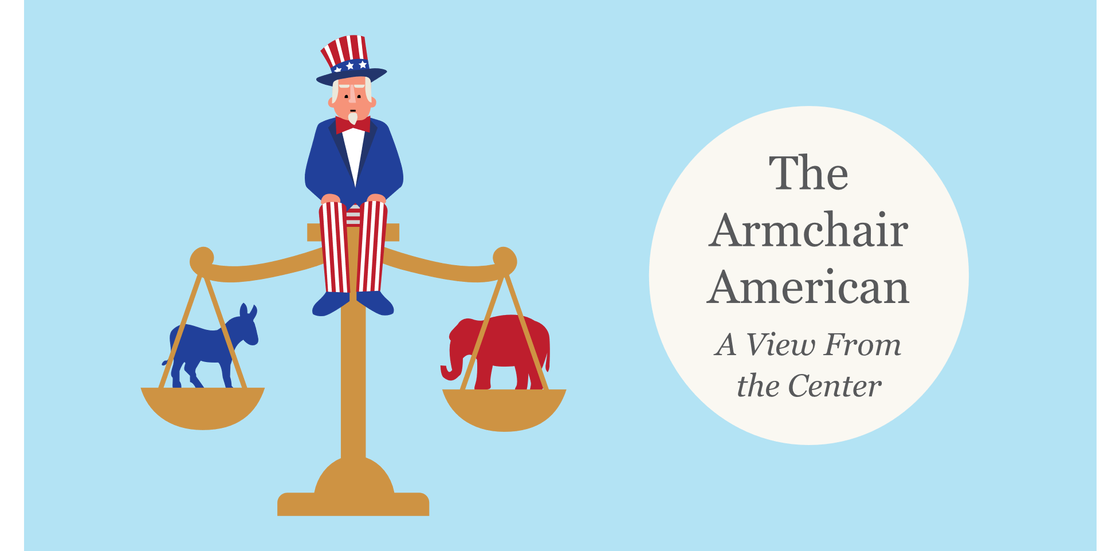
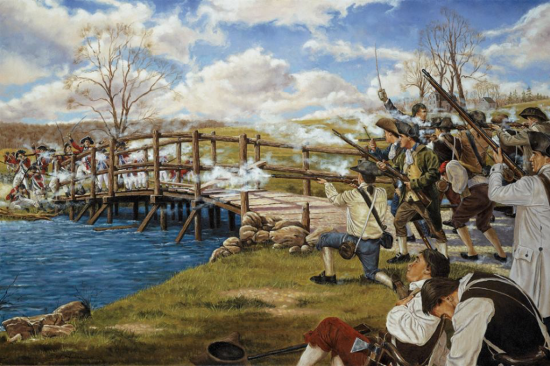
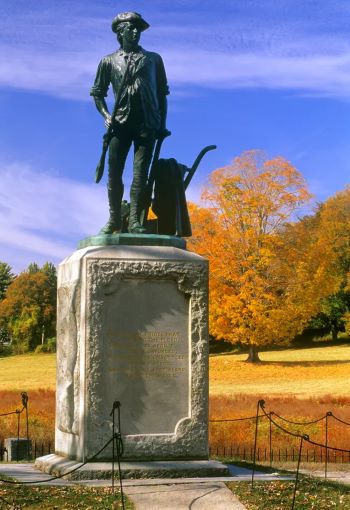
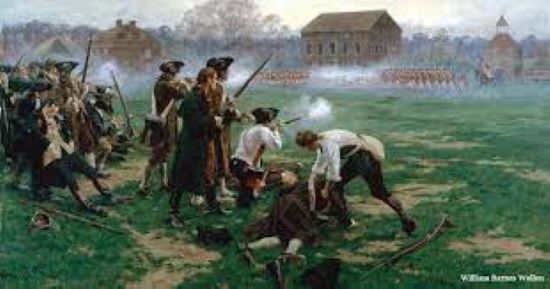


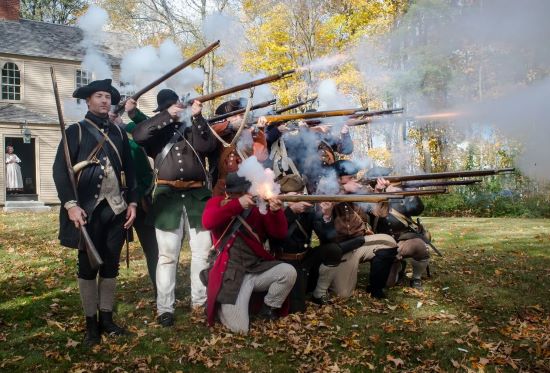


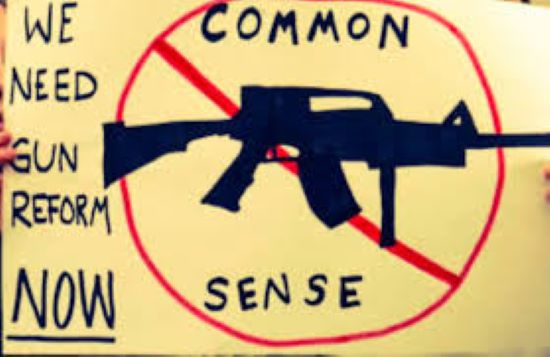

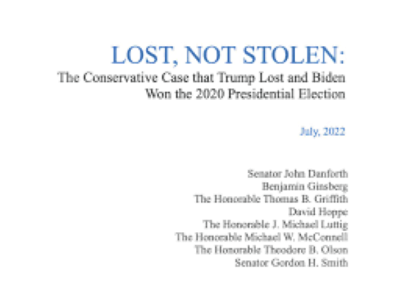


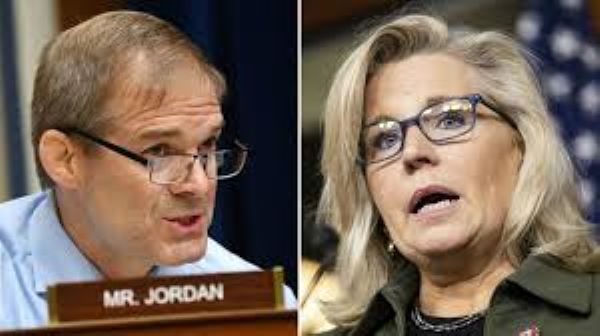


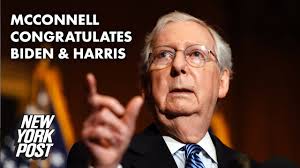










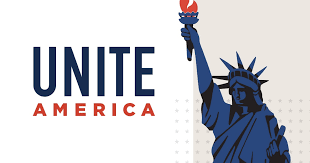
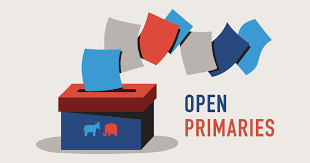
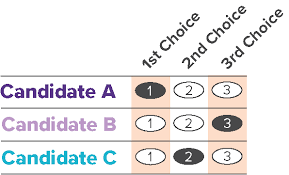




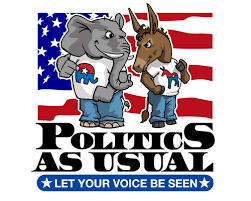
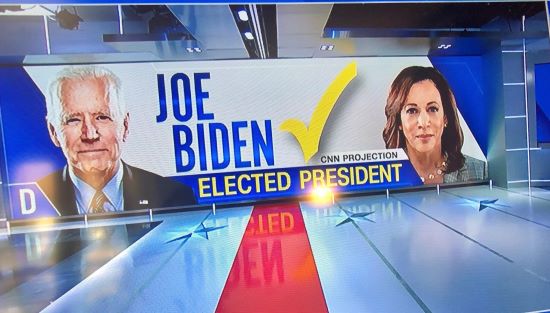
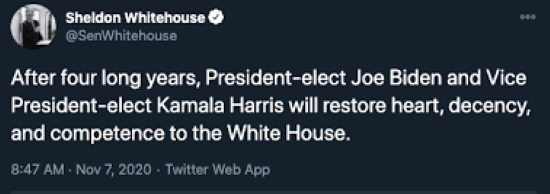
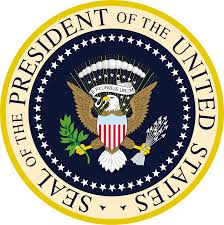
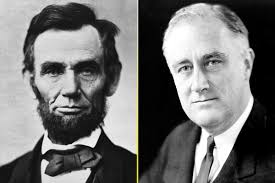
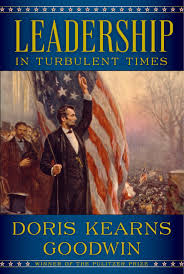
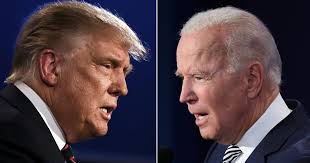
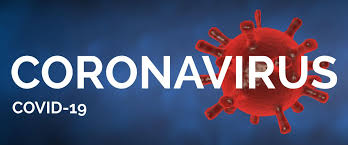
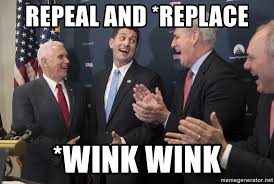
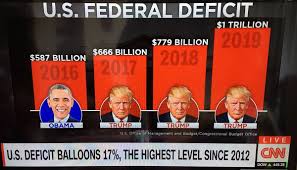
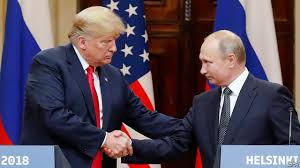
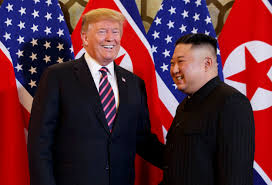
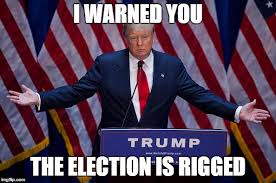
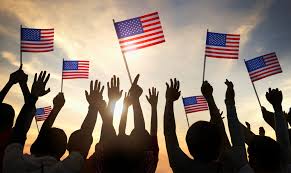
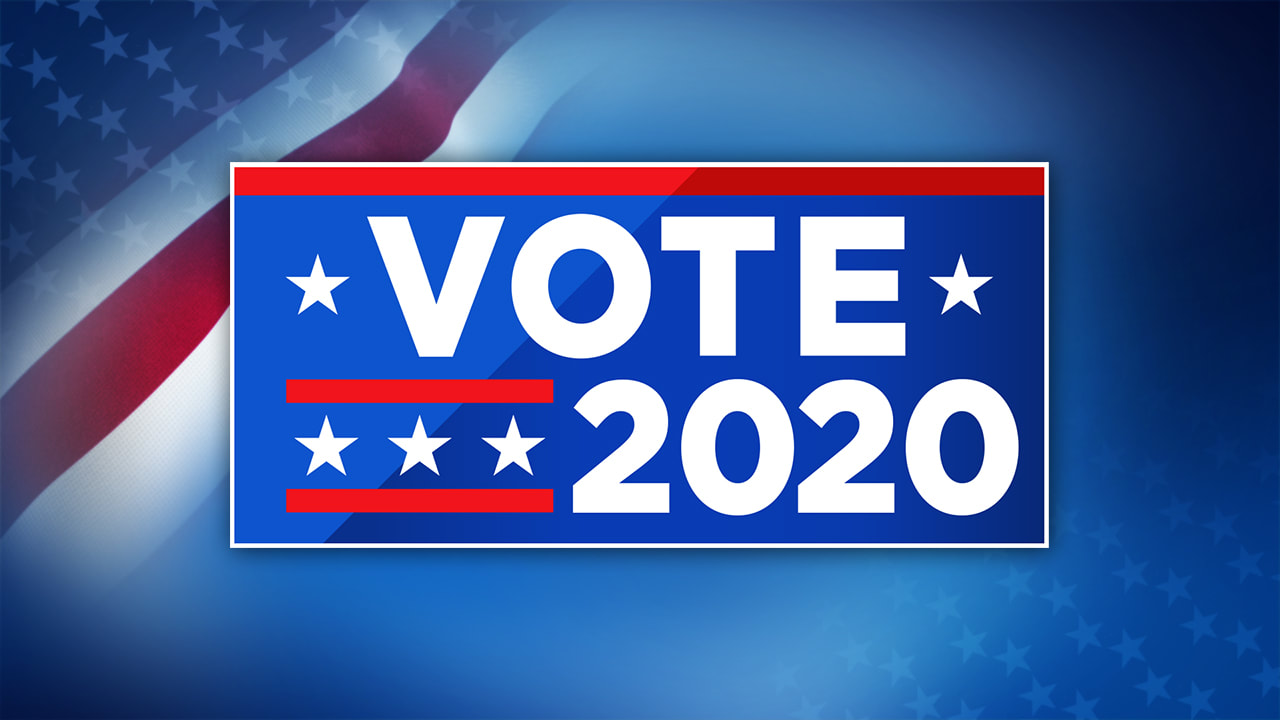
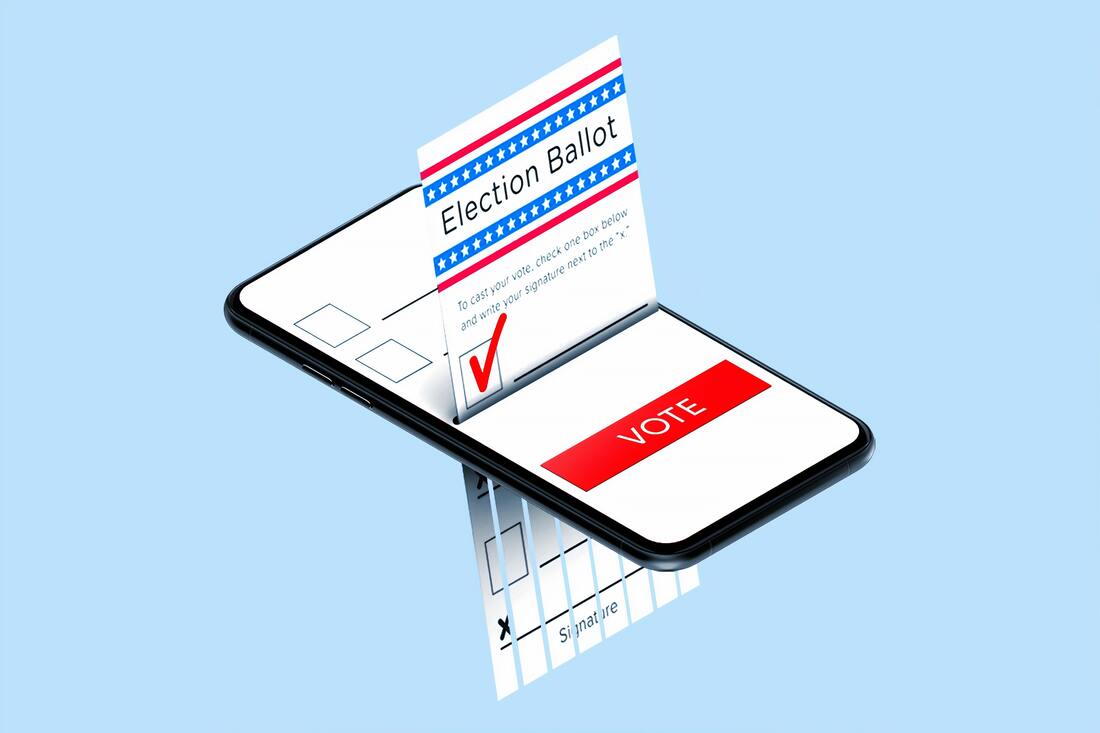
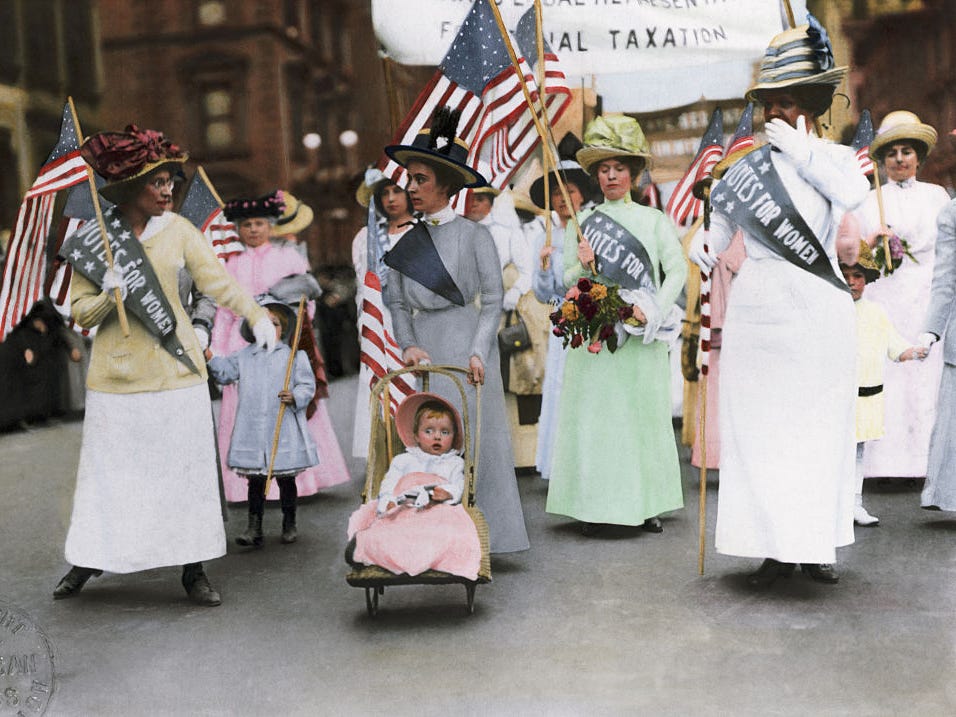

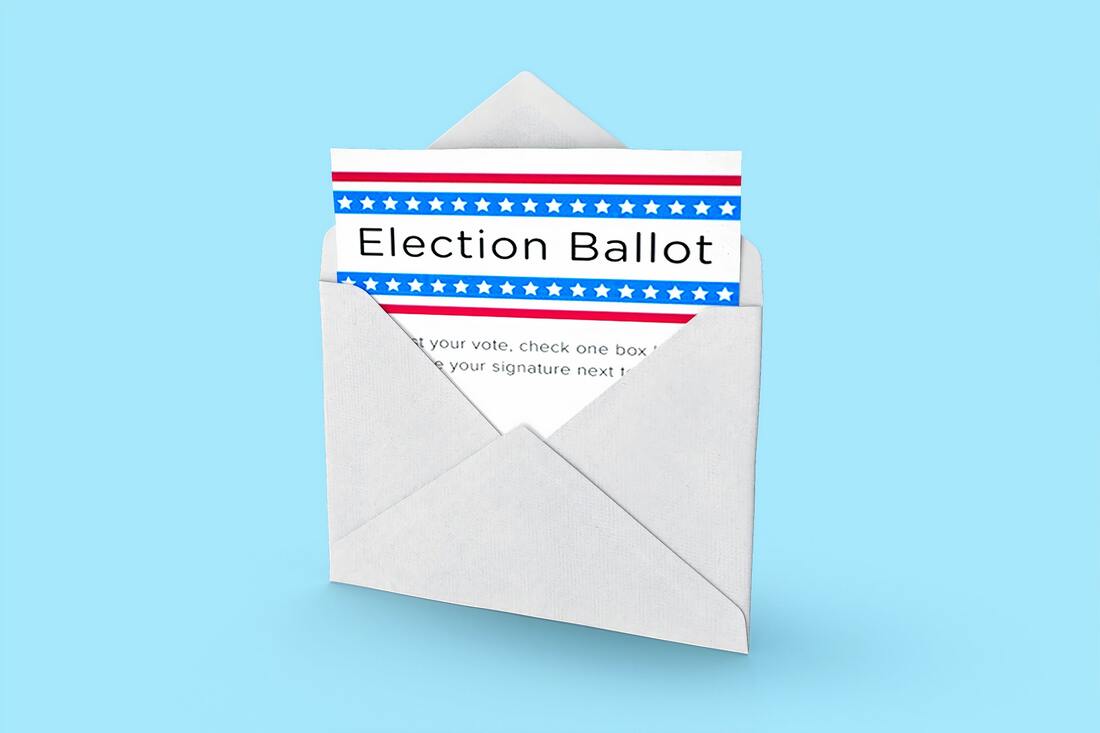
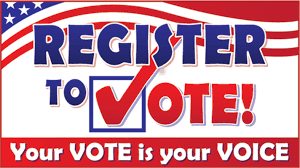
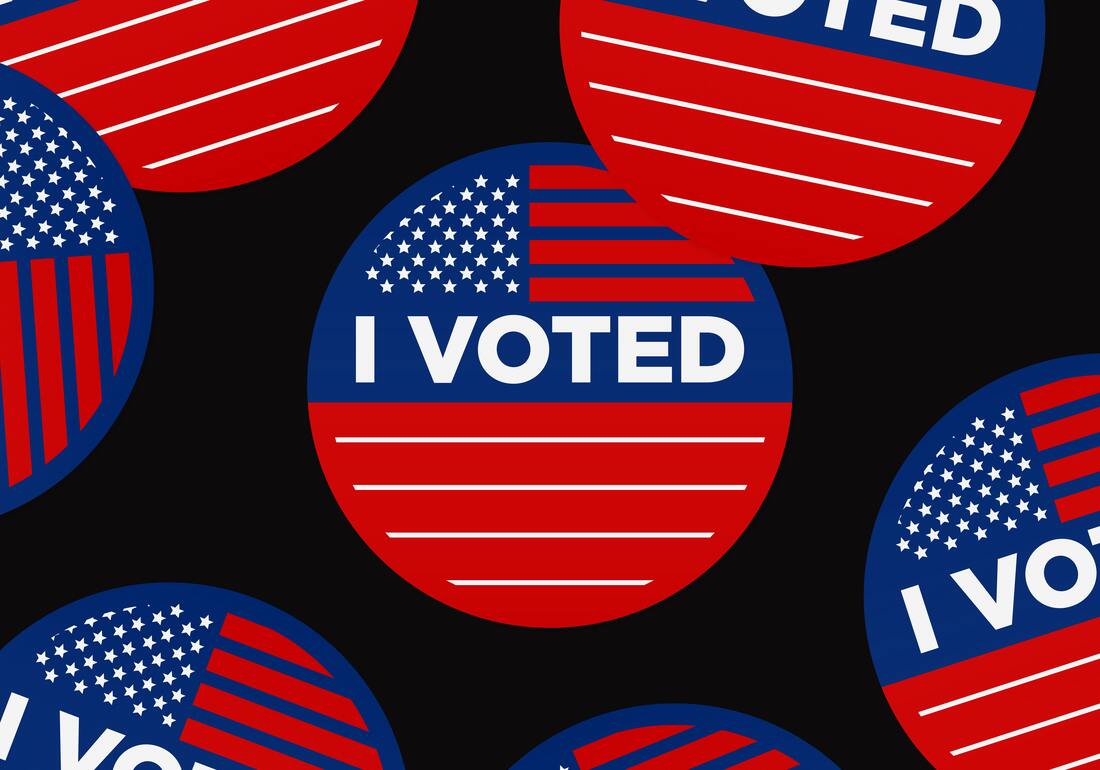
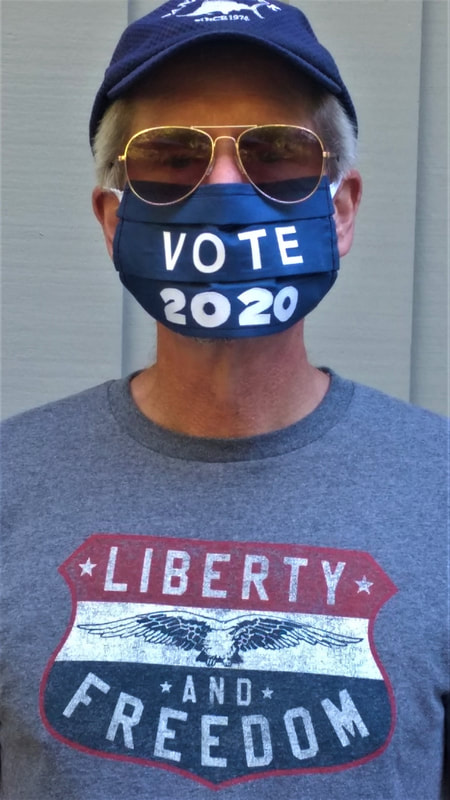

 RSS Feed
RSS Feed